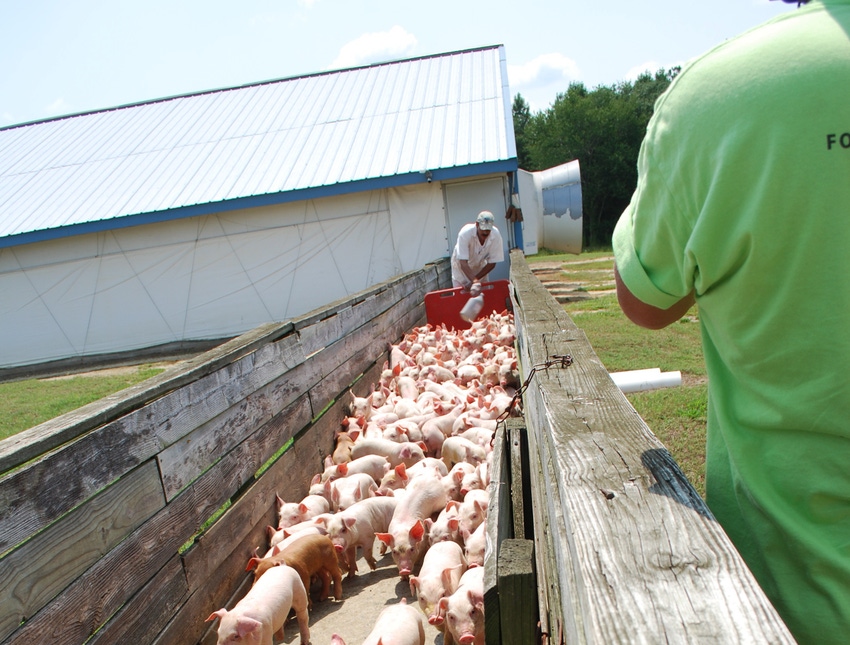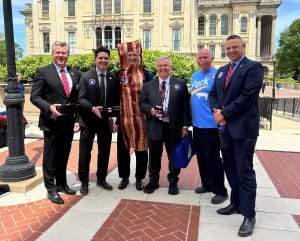Guestworker Act is about secure workforce, animal care
Pork leaders work to secure a viable workforce and ease the burden on employers.
November 2, 2017

Working on a hog farm is not an easy job. It is an occupation that requires hard work and getting dirty. Hiring and keeping good employees ready to work in the barns is a mounting problem for the swine business.
As more Americans turn to less labor-intensive jobs, it is more difficult for agriculture companies to find a viable workforce, explains Dustin Baker, National Pork Producer Council deputy director of economics and domestic production issues. “The bottom line is a domestic workforce does not exist for these types of jobs,” he states firmly.
While finding sustainable workforces has been an issue for years, the concern was more significant after the election. Pork producers and many in agriculture were fretful about what was going to happen to the availability of a suitable labor supply.
A viable agriculture workforce is necessary for the U.S. pork industry to remain globally competitive. The swine business relies on foreign labor and a threat for those available workers to disappear raised red flags for the industry. “Without access to foreign labor, production costs would increase, leading to higher food prices for consumers. In some cases, a shortage of labor could lead to facilities shutting down, causing serious financial harm for those operations,” the NPPC states in a statement.
The NPPC is raising this issue as one of its top priorities and taking steps to eliminate restrictions to available labor supply. Baker says the NPPC board of directors formed a task force comprised of America’s pig farmers to gain perspective on the issue and direction to address the problem at hand. “It is nice to have the task force we put together. It is a group of experts who live this from day-to-day that we can bounce ideas off and go to for advice,” he notes.
The first step is educating Congress on the labor supply issue. “Traditionally, it has been a produce and dairy issue. We think we have opened a lot of eyes when we tell them that it is a pork issue as well,” he states.
On the legislative front, the Agricultural Guestworker Act was introduced by Congressman Bob Goodlatte (R-VA). The bill would replace the existing H-2A farmworker visa program that is seasonal with a new H-2C program that would allow foreign farm workers to work year-round. The Ag Guestworker Act would allow up to 450,000 visas to be issued with 40,000 set aside for meat and poultry processors. The cap could be increased on an annual basis to meet demand. “The bill is intended to expand the ability of more industries in agriculture to have access to the available workforce by allowing for seasonally and non-temporary workers to come out of the shadows and become documented,” explains Baker.
Last week, the Ag Guestworker Act passed the House Judiciary Committee by one vote. It is subjected to combative debate from Democrats, raising concern over wage provisions. The NPPC recognizes the bill is a work in progress, and it is committed to working with the committee to make the bill stronger.
Ultimately, the goal is threefold: 1) allow for a viable, secure workforce 2) ease the burden on employers and 3) allow those currently working in U.S. agriculture to continue doing so.
“We are working closely with other agriculture groups to speak with one voice,” concludes Baker. “It is about animal care, and the ability to provide affordable food to consumers.”
You May Also Like


